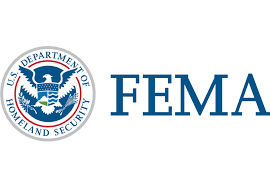The following is the latest information from federal regulators and others as of 5:00 p.m. on Thursday, April 2.
Centers for Disease Control and Prevention
- The CDC has published official and detailed ICD-10-CM coding and reporting guidelines for COVID-19 and COVID-19-related medical problems. These instructions took effect on April 1 and extend through September 30.
- The CDC has published guidance on the decontamination and reuse of filtering facepiece respirators using contingency and crisis capacity strategies.
Centers for Medicare & Medicaid Services
 CMS has been hosting regular calls with a variety of clinicians, hospitals, other facilities, and states in an effort to keep stakeholders updated on our COVID-19 efforts. Those who cannot participate when they are held can find podcasts and transcripts of those calls to listen to or read at their convenience.
CMS has been hosting regular calls with a variety of clinicians, hospitals, other facilities, and states in an effort to keep stakeholders updated on our COVID-19 efforts. Those who cannot participate when they are held can find podcasts and transcripts of those calls to listen to or read at their convenience.- See an updated list of the section 1135 waivers CMS has granted to help states and health care providers respond to the COVID-19 crisis.
- Today CMS published an informational bulletin authorizing the use of telehealth for the delivery of Medicaid-covered services and treatment for substance use disorders. This bulletin covers two areas: 1) rural health care and Medicaid telehealth flexibilities and 2) Medicaid substance use disorder treatment via telehealth.
Department of Health and Human Services
The department’s Agency for Healthcare Research and Quality will be spending $7.5 million to evaluate health system response to the COVID-19 pandemic. The money is divided into two pools: $5 million to evaluate innovations and challenges in rapidly expanding telehealth in response to COVID-19 and $2.5 million to active agency grant recipients and cooperative agreements.
Federal Emergency Management Agency
FEMA has published a fact sheet on COVID-19 emergency medical care that includes a list of eligible medical care activities that may be eligible for some reimbursement under the agency’s public assistance program. Among other things, the fact sheet summarizes the types of applicants that may be eligible for assistance and the types of costs that may be reimbursable.
- Another FEMA fact sheet describes public assistance that may be available to certain non-profit organizations for COVID-19-related costs.
Food and Drug Administration
For researchers, the FDA has developed quality-controlled reference sequence data for the SARS-CoV-2 reference strain in the U.S.
Department of Labor
The Department of Labor has published a temporary rule describing the benefits under the Emergency Paid Sick Leave Act and Emergency Family and Medical Leave Expansion Act, both of which were part of the Families First Coronavirus Response Act, which was signed into law on March 18. The law reimburses private employers with fewer than 500 employees with tax credits for the cost of providing employees with paid leave for specific reasons related to COVID-19. The law enables employers to keep their workers on their payrolls while also ensuring that workers are not forced to choose between their paychecks and public health measures. For more, see a Department of Labor news release describing the new temporary rule and view the rule itself here.
(To receive this daily update directly, sign up for our mailing list at info@safetynetalliance.org.)

 FEMA has published a
FEMA has published a 